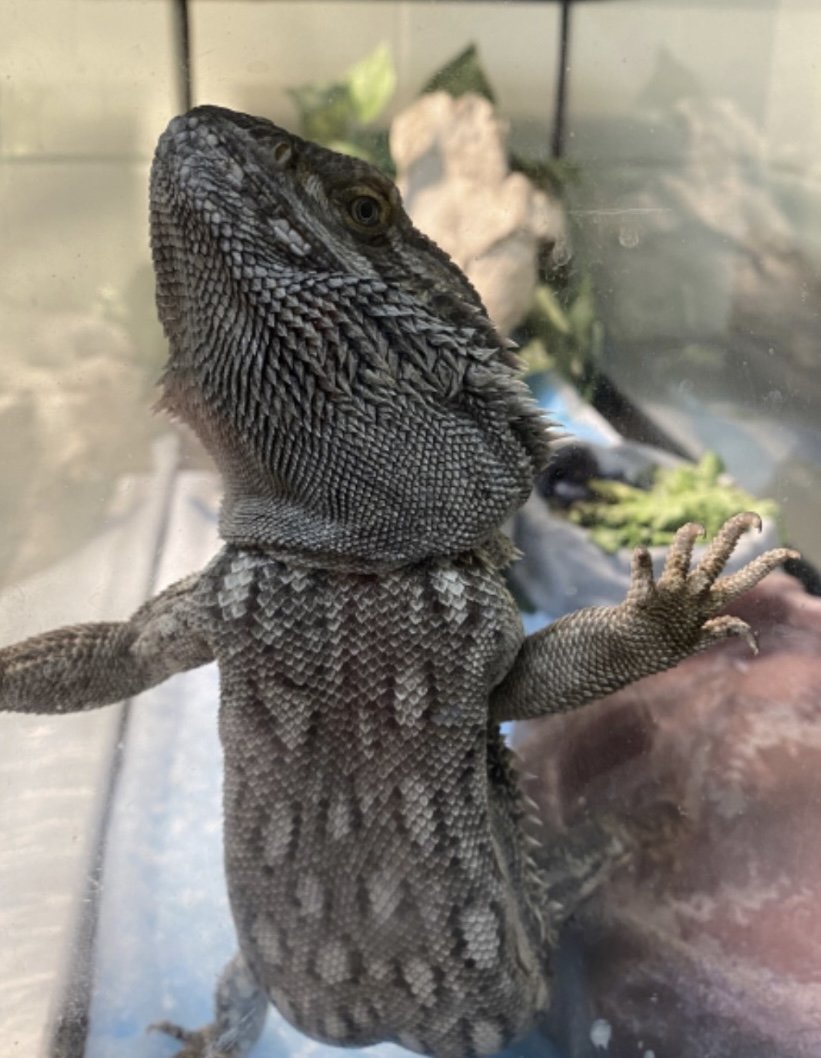Lizard (short coat) :: Male (not neutered) :: Adult
| Status: | Adopted! |
| Size: | Small |
| Location: | Mankato, MN |
Additional Info:
Organization Contact Info:
PO Box 475
Mankato, MN 56002
mendingspirits@gmail.com
http://www.mendingspirits.org
Name: Kip
Age: Adult
DOB: 10/31/22/ Best Guess
Gender: Male/ Best Guess
Species: Bearded Dragon
Temperament: Curious, Food Motivated, Interactive.
Energy Level: Low-Moderate
Requirement: Reptile Enclosure 48"x24"x24".
Adoption Fee: $100+tax
To adopt, go to: www.mendingspirits.org/
From the Foster: Kip came to Mending Spirits Animal Rescue after being lost in Minneapolis. He was taken to the Animal Control Center and transferred into our foster system.
Important things to know about Bearded Dragons:
1.) Bearded Dragons are omnivores-- they eat both plants and meat (insects)! Some of their favorite foods include kale, collard greens, dandelions, carrots, and cucumbers. Bearded Dragons prefer live insects rather than freeze-dried ones. Calcium powder is a great addition to any veggie mix.
2.) Bearded Dragon's lifespan is 10-15 years, because of this and other factors (habitat, feeding, vetting, etc.) they are considered a higher commitment than most reptiles. Like all reptiles, it’s important to wash hands after each interaction to prevent salmonella outbreaks.
3.) Unlike other nocturnal reptiles, Bearded Dragons are diurnal, mainly active during the day and sleeping through the night.
4.) Their domestic habitat needs to be at least 48" x 24" x 24". This is important for the Bearded Dragon, the space allows high heat like the desert (95-105F) on one end, and lower temperature (75-85F)on the other, allowing them to cool off. Bearded Dragons’ domestic habitat also needs to include UVB lighting to prevent calcium deficiency. Calcium deficiency leads to bone breaking and metabolic disease. They also require specific humidity levels (monitored daily) to prevent sickness and upper respiratory infections.
5.) Bearded Dragons wear their emotions on their chins. The signature beard of these dragons behaves like a mood ring, changing to black when they feel threat, stress, or arousal. They also puff up their chin and body to look larger when experiencing any of those feelings. In a calm and happy state, the beard will look like the rest of its body and rest flat against its skin.
Kip could be a great first-time reptile to a confident adult, has done the research, and is invested in creating a healthy and happy life.

